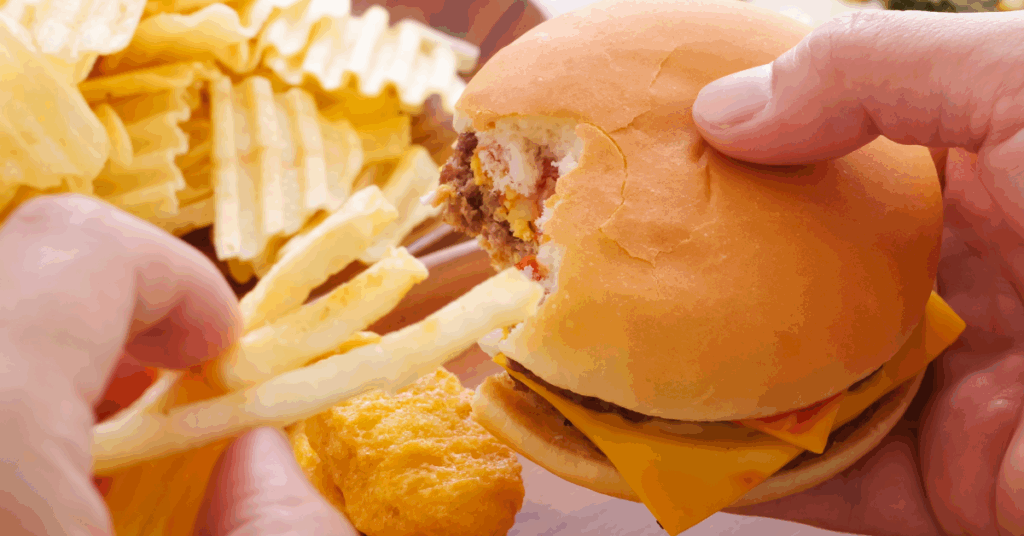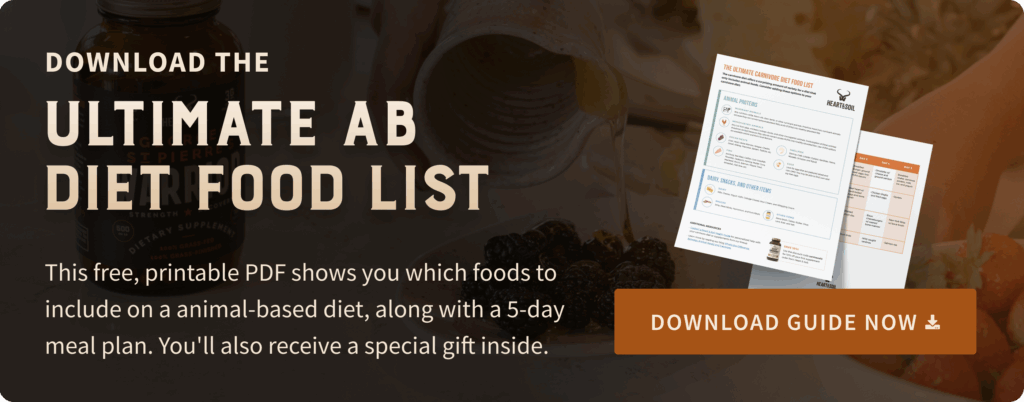PLEASE NOTE: The information in this blog is for educational purposes only. It is not a substitute for professional medical advice. Consult your healthcare provider if you’re seeking medical advice, diagnosis, or treatment.
No news is more dreaded than finding out that you or a loved one has a cancer diagnosis. Unfortunately, this fear is becoming a reality for men, women, and children all around the world.
Globally, cancer is the second leading cause of death, and cancer rates are expected to double over the next two decades (1, 2).
So, what can you do to try to prevent falling victim to this disease? Although cancer development is complex, there are steps you can take to improve your health and resilience to disease. One simple way is to clean up your diet.
In this article, we’ll explore how to clean up your diet and answer topics such as:
- Can processed food cause cancer?
- The connection between ultra processed food consumption and diabetes, obesity, and cardiovascular disease
- What should you eat instead of ultra processed food?
What is Processed Food?
Labeling something as “processed food” can be confusing, as just about everything you eat undergoes some level of processing. When someone says that you should avoid processed food, they’re generally referring to ultra-processed foods.
According to NOVA (the most common guide for labeling processed foods), “ultra-processed foods (UPFs) are industrial formulations made mostly or entirely with substances extracted from foods, often chemically modified, with additives and with little, if any, whole foods added” (3, 4).

Even though many of these foods have only existed for a few decades, ultra-processed foods now account for 60% of total energy intake in the United States (5). These foods have poor nutritional quality, offering few vitamins and minerals, more refined carbohydrates, added sugar, and seed oils (6).
Unsurprisingly, these junk foods can have a massive negative impact on your health.
Can Processed Food Cause Cancer?
We already know that ultra-processed foods may contribute to various health challenges such as obesity, poor mental health, cardiovascular disease, and diabetes (7, 8, 9). But can processed food cause cancer? Let’s take a look.
Although many studies exploring the connection between ultra-processed food and cancer are epidemiological (meaning they struggle to prove cause and effect), a frightening connection is emerging for various cancers. Here are some key findings:
- “Our findings provided robust evidence that a high intake of processed foods increases the risk of colorectal cancer” (10).
- “A 10% increase in the proportion of ultra-processed foods in the diet was associated with significant increases of 12% in the risk of overall cancer and 11% in the risk of breast cancer.” (11).
- “Our findings suggest that higher consumption of UPFs increases the risk of cancer and cardiometabolic multimorbidity.” (12).
Thanks to their low cost and manipulative combination of ingredients, ultra processed food intake can lead to overconsumption (13). This excessive consumption can contribute to weight gain and obesity, which is a known risk factor for stomach cancer, liver cancer, kidney cancer, prostate cancer, and various others (14).

Ultra processed foods can even be exposed to a variety of contaminants. In particular, bisphenol A (BPA) is an endocrine disrupting chemical found in packaging that may increase cancer risk and is considered “a substance of very high concern” (15, 16).
These foods can also microplastics, phthalates, and emulsifiers, sweeteners (like aspartame), and preservatives that may be cancer causing (17, 18, 19).
To make matters worse, an estimated 40% of cancer cases may be due to lifestyle factors like diet, smoking, and physical inactivity (20).
What to Eat Instead of Ultra-Processed Food
Avoiding ultra-processed food can feel like a losing battle at times, but making the decision can radically improve your health. One study found that replacing just 10% of processed food with minimally processed foods reduced the risk of colon cancer, rectal cancer, head and neck cancers, and overall cancers (21).
Instead of the standard American diet filled with processed junk, the animal-based diet is one of the most enjoyable and sustainable diets to try. It’s the way humans have eaten for millions of years and what our bodies have adapted to expect.

The animal-based diet consists of high-quality animal foods such as meat, organs, fruit, honey, and raw dairy, as well as eggs and low-toxicity plant foods. This way of eating excludes ultra-processed food and prioritizes nutritious food, and it can help improve digestive health, weight loss, athletic performance, and much more.

Download the full animal based diet food list PDF for a printable animal based grocery list and other resources to help you get started.
The Bottom Line: Ditch Ultra-Processed Foods
Humans have experienced a dramatic shift in diet and lifestyle over the past century. We now have constant access to fast food and options that didn’t exist until the past few decades, which are filled with ultra-processed carbohydrates, seed oils, and sugar.
When combined with less physical activity, more exposure to toxins, and less connection to the natural world, these diet and lifestyle choices are emerging as a main contributor to not only obesity, diabetes, and cardiovascular disease, but also developing cancer.
Even though diet is just one piece of the puzzle for cancer prevention, constructing a diet with whole, nutrient-dense foods is a powerful strategy to take back control of your health and reduce your risk of chronic disease.
Subscribe to future articles like this: